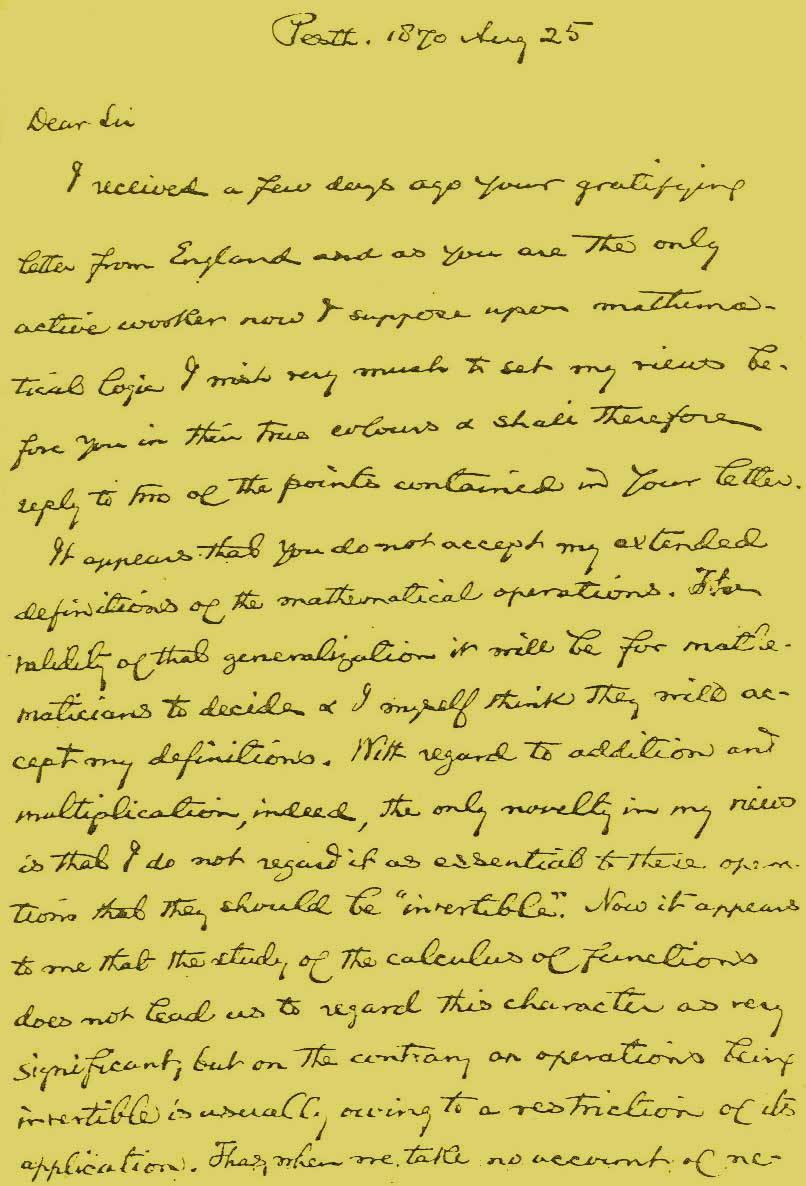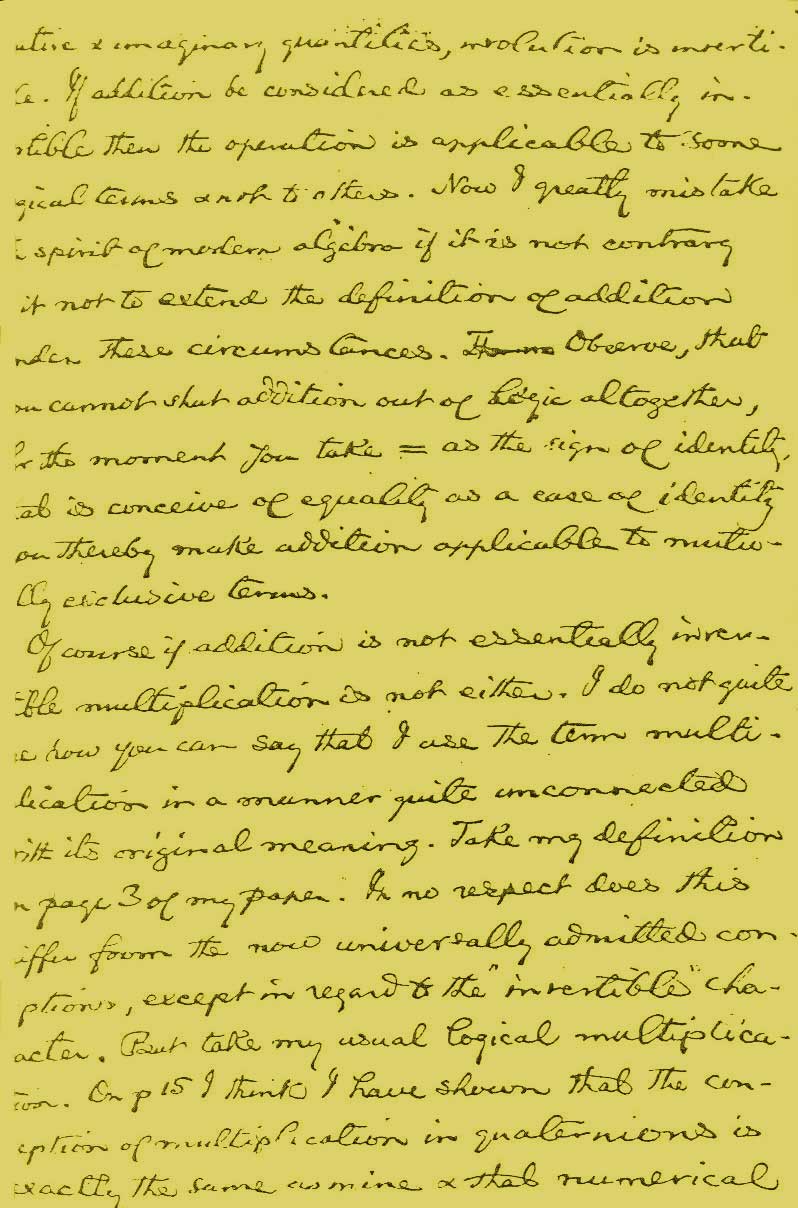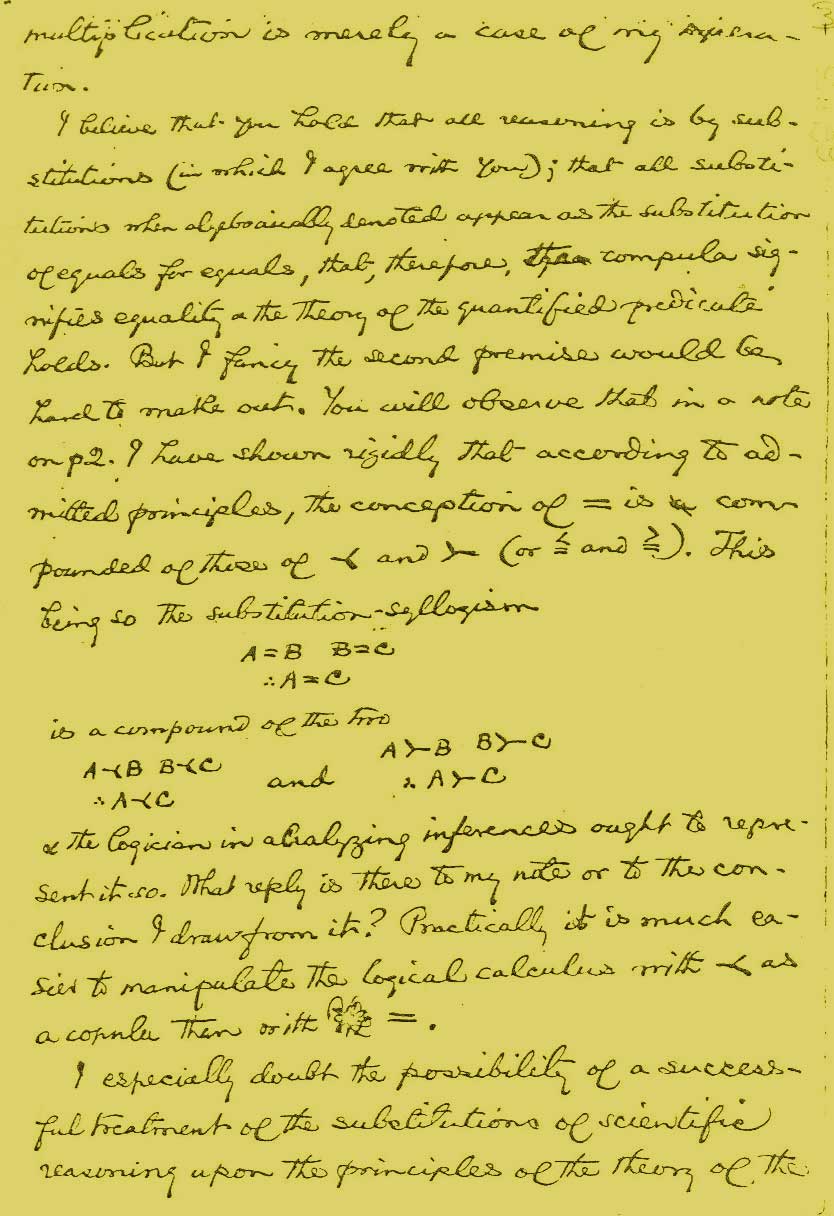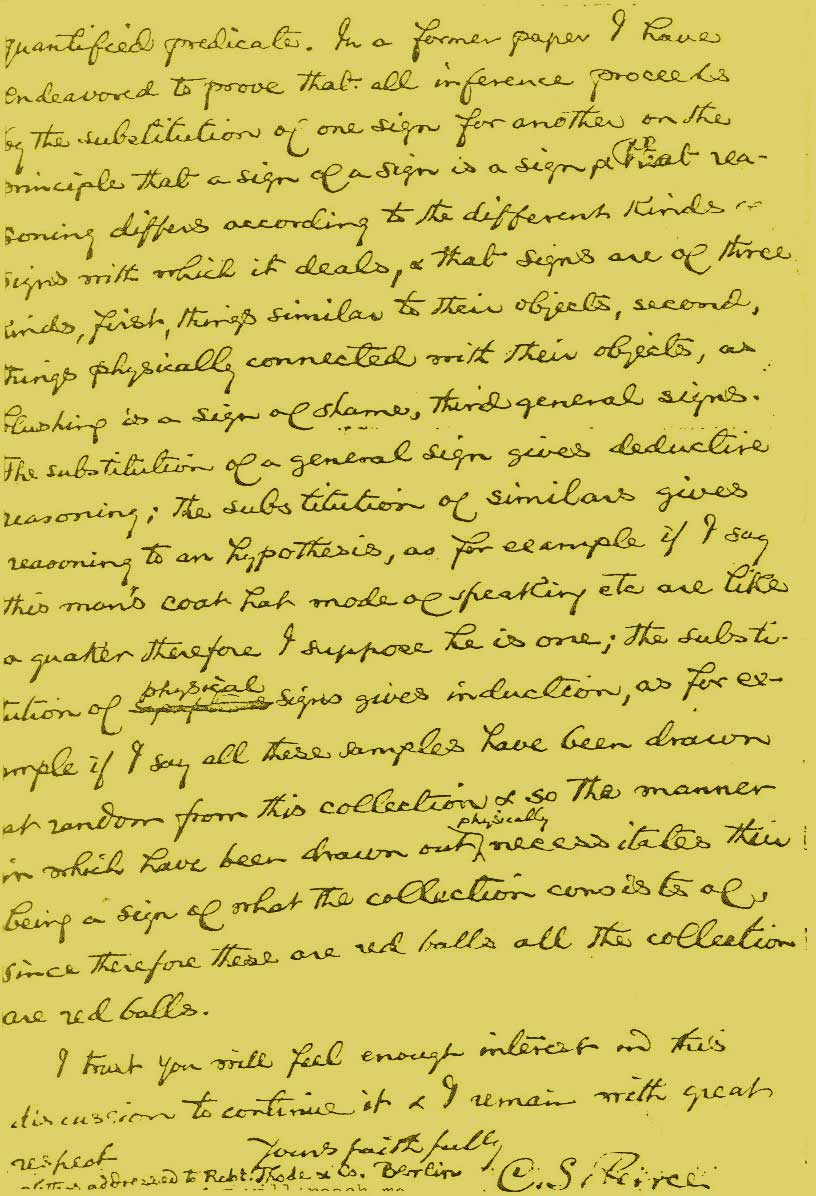
Dear Sir
I received a few days ago your gratifying letter from England and as you are the only active worker now I suppose upon mathematical logic I wish very much to set my views before you in their true colours & shall therefore reply to two of the points contained in your letter.
It appears that you do not accept my extended definitions of the mathematical operations. The validity of that generalization it will be for mathematicians to decide & I myself think they will accept my definitions. With regard to addition and multiplication, indeed, the only novelty in my views is that I do not regard it as essential to these operations that they should be “invertible.” Now it appears to me that the study of the calculus of functions does not lead us to regard this character as very significant, but on the contrary an operation’s being invertible is usually owing to a restriction of its application. Thus, when we take no account of negative



